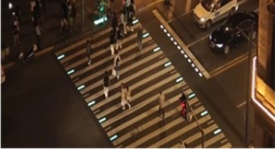
Ministry of Land, Infrastructure, and Transport announced that 23 cities nationwide including Guro-gu, Seoul* (total of 600 billion won) were selected as the target site for the 「Smart Challenge Solution Expansion Project」 to spread and distribute excellent smart city solutions nationwide.
* 【Seoul Guro, Dongjak, Jung-gu/Busan Nam-gu/Daegu Dalseo-gu, Dong-gu/Incheon Seo-gu/Gwangju Nam-gu/Gyeonggi Gwangmyeong, Guri, Seongnam, Suwon, Pyeongtaek/Gangwon Chuncheon, Taebaek/Chungbuk Chungju/Chungnam Nonsan, Hongseong/Jeonbuk Gimje/Jeonnam Yeosu/Gyeongbuk Yeongju/Gyeongnam Miryang, Jinju】
As a result of the contest for spreading smart city solutions on January 12th, 90 cities supported and showed a lot of interest nationwide, and recorded a high competition rate of 4:1.
* Discovering and spreading solutions suitable for solving urban problems in Korea through national pilot smart city, challenges, etc.
A total of 23 smart city solutions will be distributed to the 7 cities selected this time. Each local government will select and apply two or three solutions necessary for solving urban problems in the region, such as improving traffic safety and preventing crime. The smart city solutions including Smart pole, smart bus stop, smart crosswalk, electric safety monitoring, shared parking, demand response bus, autonomous navigation drone.
Convenience for daily life
Smart bus stops were also widely accepted. Guri-si, Gyeonggi-do, etc. have intensively implemented services that can improve user convenience, such as cleaning contaminated air such as fine dust in urban areas and bus smoke, providing bus arrival information, and crime relief bells.
Temperature control (cooling and heating) of the bus stop is possible to provide a pleasant environment for users even in extreme heat and cold, and bus arrival information, fine dust, administrative information, etc. are also displayed.
On the other hand, in Chungju, Chungcheongbuk-do, etc., it received excellent reviews for suggesting novel ideas such as planning a smart town bus stop so that elderly people in rural areas can wait in a pleasant environment (cooling and heating) even in a heat or cold climate.
In order to solve the problem of insufficient parking in the city, Jung-gu, Seoul introduced a smart shared parking* system that can reduce parking lot search time and improve the utilization rate, and improve public transportation accessibility in sections without bus routes due to narrow and complex roads. In order to do so, we provide a demand-responsive public transportation** service, which is a flexible operation of bus routes according to customer’s request, sharing taxi rides according to passengers’ demand.
• Smart shared parking system: A service that provides information to users by sharing private and public parking information
Life safety
In Dongjak-gu and Guro-gu, Seoul, where there are many floating populations, smart poles* equipped with functions such as public WiFi provision and integrated urban control through CCTV will be installed to accelerate Seoul’s smart pole deployment plan.
Connecting high-tech equipment such as public WiFi, CCTV, abnormal sound source detection, and emergency bells to general street lights
On the other hand, Gwangmyeong City, Gyeonggi Province, applied for a smart pole equipped with CCTV and emergency bells to prevent crime in areas with a high ratio of elderly and female single households, and plans to establish a real-time monitoring system in connection with the integrated urban operation center. to be.
Gimje City, Jeollabuk-do, is planning to implement an integrated fire safety monitoring system that can detect fires early by combining electrical safety monitoring* (smart distribution box) and autonomous navigation drones** in areas where there are many electric fires.
The basic local governments selected for the solution diffusion project plan to concrete their business plans through expert technical support for each solution and start the business within the first half of the year. In addition, through the Smart City Regulatory Sandbox* system, which promotes various innovation service experiments in cities by resolving regulatory difficulties related to smart city technology and services, 7 demonstration projects were deliberated by the 11th National Smart City Committee (3.3). Approved.
• Information on the regulatory sandbox system, online consultation and application support (http://smartcity.kaia.re.kr)
The seven approved smart demonstration projects* include an energy P7P trading platform that enables individual electricity transactions, a smart traffic safety system that prevents collisions with road warning signs and voice guidance in children’s protection zones, and day and night patrol flights in parks and crime. And autonomous navigation drones that monitor traffic accidents in places where CCTV is insufficient.
① Blockchain-based energy smart transaction, ② autonomous navigation AI drone city safety service, ③ pedestrian crossing warning system, ④ pedestrian protection zone smart traffic safety, ⑤ PM wireless charging cradle, ⑥ self-driving security robot unmanned security service, ⑦ smart Digital healthcare service using shoes
More Information:
◆ 2021 Smart City Solution Expansion Project Competition Selection Results